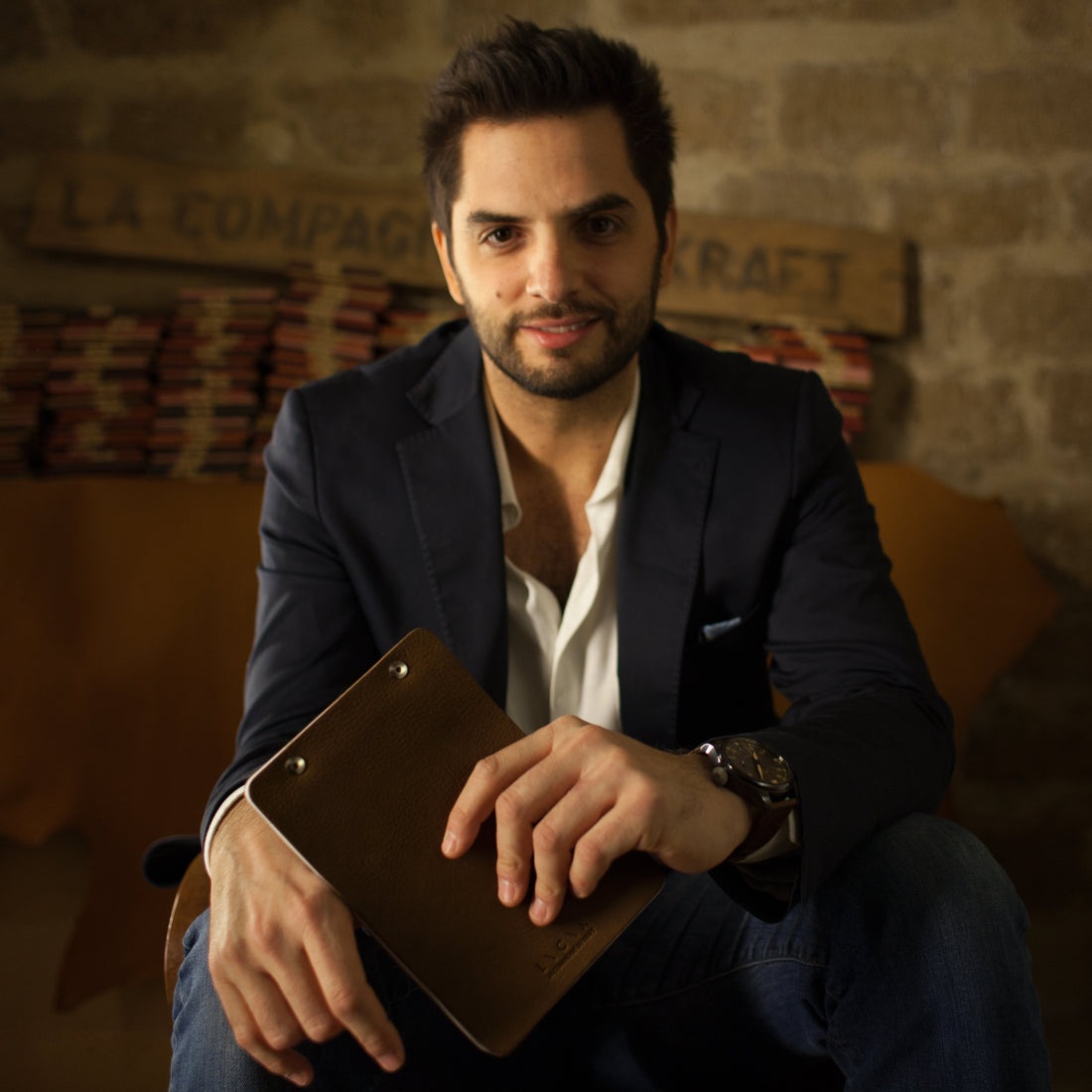
Choosing a sustainable notebook: more than an object, a legacy.
Share
In the din of immediacy, where everything is consumed then thrown away, we invite you to pause. To breathe. To look at your hands and ask yourself what mark you want to leave. This article isn’t a sales pitch. It’s an invitation to slow down, told through the story of something that seems simple yet is powerful by nature: the notebook. When it’s made to last, it becomes a mirror of your life—a quiet act of defiance against an age that has forgotten the value of time. Forget everything you think you know about stationery and let us tell you another story. Yours.
From the Landes forests to your desk: the birth of an authentic object
The story of our notebooks doesn’t begin in a Parisian design studio, but in the breath of the Landes pines. Picture the scene: loggers with work-hardened hands and steady eyes. To communicate, to tally, to remember, they jotted down the essentials in rough little pads. These weren’t precious words—just true ones. Thoughts sometimes meant for the women who, from afar, managed the operation with quiet rigor.
These were ordinary people. And that’s precisely what makes their legacy so valuable. Popular doesn’t mean common. Often, it’s quite the opposite. From that simple, authentic tradition, we kept what matters: the toughness of a tool built to serve, and the nobility of a material that lives. This isn’t folklore; it’s the DNA of every piece that leaves our workshop.
The antidote to obsolescence: why a single notebook is an act of resistance
Today, we’re a small pocket of resistance—an anomaly in the landscape of hyperconsumption. So we’re throwing down a simple yet radical challenge: stop buying notebooks. Buy just one. The right one.
Owning a single refillable notebook is a refusal of the “always more” cycle. It’s a deliberate act that roots you in the present. Every page you fill is no longer a resource consumed, but a layer added to your personal story. Unlike a mass-produced product designed to be replaced, a durable object is meant to accompany you. It pushes you to be intentional, to choose what deserves to be written in it. This is the philosophy of slow living applied to writing.
An economy of means, a richness of meaning
The paradox is delightful: by choosing to own less, you gain more. More clarity, more focus, more connection with your own thoughts. You’re no longer just a consumer of paper, but the keeper of an object that evolves with you.
The patina of time: when your notebook becomes a treasure
Take your time. Fill it with care—with doubts, projects, flashes of brilliance, and grocery lists. Over months and years, this humble object will transform. The leather cover will soften under your fingers, marked by the journeys you’ve taken and the coffee you’ve spilled. It will bear the scars of your life.
That’s where the magic happens. Your notebook will become a one-of-a-kind object—a silent witness to your path. A treasure even your wealthiest neighbor can never buy. Why? Because they won’t have given it the one thing that creates genuine value: time. They won’t have had the patience to let it mature, age, and grow richer with experience. That’s why our approach isn’t made for the masses. And we’re perfectly fine with that.
Choosing durability means choosing serenity
Material clutter mirrors mental clutter. Stacking up cheap, barely started notebooks fragments your attention. Choosing a single, refillable object is choosing clarity. You know where your notes are. You know this tool is reliable—that it won’t let you down.
That trust in your tools is a source of peace of mind. It’s the cost of serenity. You’re no longer distracted by the hunt for the next purchase, but fully focused on what matters most: what you’re about to create. This approach, inspired by the know-how of French craftsmanship, puts use and experience back at the center of everything. To learn more about the history of these techniques, the Musée des Arts et Métiers offers fascinating perspectives on the value of well-made objects.
Conclusion: What if you started writing a story that lasts?
We’ve inherited a culture of mindful writing, born of necessity and simplicity. Today, we cultivate it as a way of life. A durable notebook isn’t an expense; it’s an investment—the only one whose value is guaranteed to grow, not on financial markets, but in the great ledger of your life.
So, the next time you pick up a pen, ask yourself: Are you ready to throw your thoughts onto something ephemeral, or to entrust them to a traveling companion that will protect them for years to come?
Take a deep breath. And write.